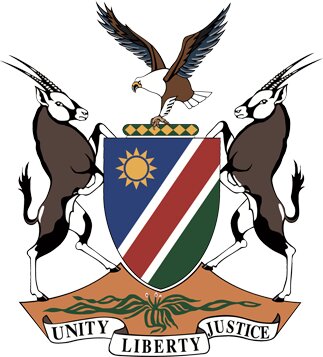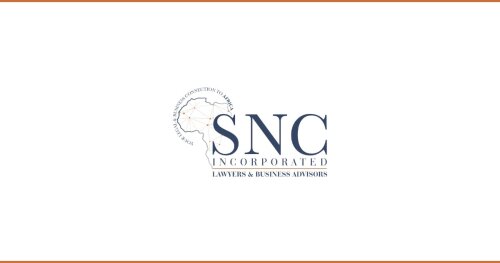Best Restructuring & Insolvency Lawyers in Namibia
Share your needs with us, get contacted by law firms.
Free. Takes 2 min.
Or refine your search by selecting a city:
List of the best lawyers in Namibia
About Restructuring & Insolvency Law in Namibia
Restructuring and insolvency law in Namibia is a crucial area of business and financial law. It involves legal processes and regulations designed to assist businesses and individuals who are facing financial distress or insolvency. The aim of these laws is to ensure fair treatment of creditors, provide mechanisms for rescuing distressed companies, and regulate the orderly winding up of companies and individuals who are unable to pay their debts.
Namibia’s restructuring and insolvency framework addresses issues such as business rescue, liquidation, repayment plans, and creditor arrangements. It balances the interests of debtors and creditors, offering solutions ranging from negotiating new payment terms to the full liquidation of assets to pay back creditors.
Why You May Need a Lawyer
Several situations may arise that require professional legal assistance in restructuring and insolvency. Some common scenarios include:
- When your business cannot meet its financial obligations and creditors are demanding payment.
- If you are an individual or company facing bankruptcy and need guidance on available options.
- When you need help negotiating with creditors to avoid liquidation or bankruptcy.
- If you are a creditor seeking to recover debts from an insolvent company or individual.
- When you need to navigate the legal compliance aspects of insolvency procedures.
- If you are considering voluntary business rescue or restructuring to avoid full liquidation.
- When you require representation in insolvency-related court proceedings.
A lawyer will help you understand your rights and obligations, develop strategies to manage or settle debts, and guide you through formal processes with confidence.
Local Laws Overview
Namibia’s restructuring and insolvency laws are primarily governed by the Insolvency Act 24 of 1936 (as amended) and the Companies Act 28 of 2004. The key aspects of these laws include:
- Sequestration and Liquidation: These are legal processes by which a company or individual’s assets are administered and distributed to creditors. Sequestration generally refers to individuals, while liquidation refers to companies.
- Business Rescue and Reconstruction: There are mechanisms for financially distressed companies to reorganize and attempt to continue operations. This may involve court-supervised restructuring or negotiation with creditors.
- Creditors’ Rights: Both secured and unsecured creditors have defined rights regarding claim submission, priority of payment, and participation in creditors’ meetings.
- Trustees and Liquidators: Appointed individuals (often with legal or accounting backgrounds) oversee asset collection, claim adjudication, and distribution to creditors.
- Fraudulent and Preferential Transactions: The law regulates the treatment of transactions that unfairly disadvantage some creditors prior to insolvency, including those that may be set aside by the courts.
- Rehabilitation: Namibian law allows for individuals to apply for rehabilitation post sequestration, enabling them to regain their financial and legal standing.
Frequently Asked Questions
What is insolvency in Namibia?
Insolvency occurs when an individual or company is unable to pay its debts as they become due. In Namibia, insolvency is recognized legally and triggers specific legal processes to address debt resolution and asset distribution.
What options exist for struggling businesses besides liquidation?
Businesses can pursue restructuring, business rescue, or enter into voluntary arrangements with creditors. These options may enable the business to continue operating while settling debts over time under new terms.
What happens during liquidation?
A liquidator is appointed to sell the company’s assets and distribute the proceeds to creditors. The company ceases trading, and after the process, it is dissolved and removed from the company register.
Can I keep any assets if I am declared insolvent?
Certain assets may be exempt from liquidation, including necessary personal items or assets protected by law. However, most assets will be used to pay creditors unless protected by specific legal provisions.
How do creditors get paid during insolvency?
Creditors submit claims against the insolvent estate. Payments are made based on the priority established in law, with secured creditors typically paid before unsecured creditors.
Can insolvency be avoided if I am facing financial trouble?
Yes, timely negotiations with creditors, restructuring of debts, or business rescue proceedings can sometimes help avoid formal insolvency.
Who appoints the liquidator or trustee?
A court or the Master of the High Court appoints a liquidator or trustee to manage the insolvency process and protect creditor and debtor interests.
What is the difference between voluntary and compulsory liquidation?
Voluntary liquidation is initiated by the business owners or shareholders when they decide the company cannot continue. Compulsory liquidation is court-ordered, typically initiated by creditors seeking to recover debts.
Will insolvency affect my credit rating?
Yes, insolvency proceedings are recorded and will negatively impact your credit rating, making it more difficult to access credit in the future until full rehabilitation.
How long does the insolvency process take in Namibia?
The process duration varies depending on case complexity, the nature of the assets involved, and court proceedings. Simple cases may conclude in several months, while complex matters can take years.
Additional Resources
If you need more information or assistance, consider contacting the following resources:
- Master of the High Court: The office responsible for overseeing insolvency and liquidation matters.
- Law Society of Namibia: Provides referrals to qualified legal practitioners experienced in insolvency and restructuring.
- Business Rescue Practitioners: Professionals who specialize in business rescue proceedings.
- Financial Institutions: Some banks or financial advisors offer support about managing debt.
- Ministry of Justice: Offers guidance on legal rights and processes for individuals and businesses in financial distress.
Next Steps
If you are facing financial difficulties or need to explore your options under restructuring and insolvency law in Namibia, consider the following steps:
- Assess your financial situation and gather all relevant documentation, such as statements, contracts, and correspondence with creditors.
- Consult a qualified Namibian lawyer with experience in restructuring and insolvency to discuss your options and obligations.
- Contact relevant authorities or bodies, such as the Master of the High Court or business rescue practitioners, for further guidance.
- Engage early with creditors where possible to discuss alternative arrangements or negotiated settlements.
- Prepare for any formal proceedings by following your lawyer’s advice and ensuring compliance with local laws and deadlines.
Timely legal advice is crucial to protect your interests and to explore all possible avenues for resolution.
Lawzana helps you find the best lawyers and law firms in Namibia through a curated and pre-screened list of qualified legal professionals. Our platform offers rankings and detailed profiles of attorneys and law firms, allowing you to compare based on practice areas, including Restructuring & Insolvency, experience, and client feedback.
Each profile includes a description of the firm's areas of practice, client reviews, team members and partners, year of establishment, spoken languages, office locations, contact information, social media presence, and any published articles or resources. Most firms on our platform speak English and are experienced in both local and international legal matters.
Get a quote from top-rated law firms in Namibia — quickly, securely, and without unnecessary hassle.
Disclaimer:
The information provided on this page is for general informational purposes only and does not constitute legal advice. While we strive to ensure the accuracy and relevance of the content, legal information may change over time, and interpretations of the law can vary. You should always consult with a qualified legal professional for advice specific to your situation.
We disclaim all liability for actions taken or not taken based on the content of this page. If you believe any information is incorrect or outdated, please contact us, and we will review and update it where appropriate.
Browse restructuring & insolvency law firms by city in Namibia
Refine your search by selecting a city.















